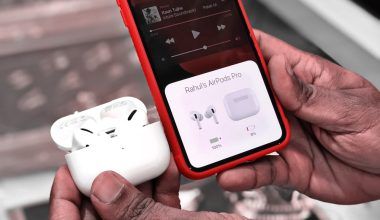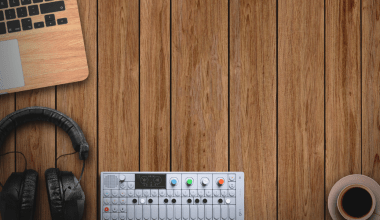Music is a universal language that brings people together. It can make us smile, cry, and even feel nostalgic. But have you ever wondered how many songs exist in the world? From ancient folk songs to modern pop hits, the number of songs out there feels limitless. With new music being created every second, the total number keeps increasing. This blog will take you on an exciting journey to explore the vast world of music, its history, and its boundless growth.
The Origins of Music
Music has been with us since ancient times. Early humans used basic tools like sticks and stones to create rhythmic beats. These sounds evolved into melodies and later became songs that reflected their lives and surroundings.
- Ancient Melodies: In civilizations like Egypt and Mesopotamia, people used music for worship and celebrations. Although these songs were not written down, they laid the foundation for modern music.
- Folk Traditions: Communities passed songs orally from one generation to the next. These folk songs often told stories about nature, love, and struggles.
Although many ancient songs have disappeared, the tradition of creating music has never stopped.
How Recorded Music Changed Everything
The invention of music recording in the late 1800s brought a massive shift. Before this, people could only enjoy music during live performances. With the phonograph, music became something you could listen to anytime and anywhere.
- 20th Century Explosion: Jazz, classical, rock, and blues gained popularity, contributing millions of songs to the global collection.
- Radio Revolution: Radios brought music to every home. They also allowed listeners to discover new genres from different countries.
The ability to record and share music transformed it into an industry and boosted the number of songs like never before.
How Many Songs Exist Today?
It’s hard to pinpoint the exact number of songs in the world, but we can estimate based on modern music platforms.
- Streaming Services: Spotify, one of the largest platforms, offers over 100 million songs. Add to that the millions of tracks available on YouTube, Apple Music, and SoundCloud.
- Local Music: Countries like India and Brazil contribute countless traditional and regional songs that don’t always make it to mainstream platforms.
- Independent Artists: Millions of songs are created by independent musicians who share their work online or keep it for personal projects.
Experts estimate that there are over 200 million unique songs globally, and this number continues to grow every single day.
Why the Number Keeps Growing
New songs emerge constantly because technology makes it easier than ever to create music. Let’s take a closer look at the reasons behind this growth.
- Accessible Tools: Music creation software is now affordable and user-friendly. People can compose, record, and produce music from their bedrooms.
- AI Music Generation: Artificial intelligence can write and produce songs, adding even more music to the global catalog.
- Streaming and Sharing: Platforms like Deliver My Tune help independent artists distribute their songs to listeners across the globe.
These advancements make it possible for millions of people to create and share music without the need for record labels or expensive studios.
Challenges in Counting Songs
Why can’t we simply count all the songs? The task is much harder than it seems.
- Multiple Versions: One song might have covers, remixes, and live versions, all of which count as unique tracks.
- Lost Songs: Many old songs were never recorded and exist only in memories.
- Independent Releases: Artists often release music informally, making it difficult to track.
Even with advanced technology, music databases can only estimate the total number of songs.
The Role of Streaming Platforms
Streaming platforms have changed how we discover and enjoy music. They’ve also contributed significantly to the growing song catalog.
Fun Streaming Facts:
- Spotify adds around 70,000 new songs every day.
- YouTube Music combines traditional songs with creative covers and mashups.
- Platforms like Bandcamp and SoundCloud allow indie artists to share their music directly with fans.
With such easy access to tools and platforms, musicians now have endless opportunities to create.
How Different Cultures Add to Music’s Growth
Every culture contributes its own unique style and flavor to the world of music.
- India’s Rich Heritage: With its classical ragas and Bollywood songs, India adds thousands of tracks every year.
- African Rhythms: African beats heavily influence modern genres like jazz, hip-hop, and electronic dance music.
- Latin Vibrance: Salsa, reggaeton, and bachata have gained fans worldwide, adding energy to global playlists.
Cultural diversity ensures that music remains fresh and innovative, fueling its unstoppable growth.
Independent Artists: A Driving Force
Independent musicians are making waves in the music industry. They no longer rely on record labels to share their songs with the world.
- Self-Publishing: Platforms like Deliver My Tune empower artists to distribute their songs across 100+ platforms.
- Social Media Power: Apps like Instagram and TikTok provide a direct way to reach listeners.
- Creative Freedom: Without the constraints of major labels, indie artists experiment with sounds, contributing to the growing song library.
The rise of independent music has revolutionized how songs are created and shared.
The Impact of AI on Music Creation
Artificial intelligence is changing the game for musicians, making music creation faster and easier.
- AI Composers: Some AI tools write entire songs, from lyrics to melodies.
- AI Mastering: Tools like Deliver My Tune’s AI Mastering service improve the quality of songs with professional finishing touches.
- Enhanced Discovery: AI algorithms on platforms like Spotify suggest new songs to listeners based on their preferences.
AI allows artists to focus on creativity while technology handles technical details.
Preserving Old Songs
Old songs hold historical and emotional value. Unfortunately, many have been lost over time because they were never recorded or written down.
- Folk Songs: These traditional songs often tell stories of communities and their lives.
- Classical Pieces: Composers like Mozart and Beethoven left behind timeless works that continue to inspire.
- Cultural Archives: Efforts to document and preserve traditional music ensure that future generations can enjoy these treasures.
Preserving these songs keeps the rich history of music alive.
What the Future Holds for Music
The future of music looks incredibly exciting. Here’s what we can expect:
- More Music Technology: Virtual reality and blockchain could redefine how we experience and distribute music.
- Global Collaboration: Artists from different countries will continue to work together, creating unique cross-cultural tracks.
- Infinite Growth: As tools and platforms become more accessible, the number of songs will keep rising, ensuring that music remains a constant in our lives.
Conclusion: An Infinite Playlist
So, how many songs exist in the world? While we can’t give an exact number, it’s clear that music is limitless. Every day, thousands of new songs are added to the global collection. Whether it’s a centuries-old folk tune or a fresh indie hit, every song adds to the beauty of the world.
Music connects us, tells our stories, and brings joy to our lives. As long as people have emotions and creativity, music will continue to grow. Let’s celebrate the endless journey of sound and keep listening, creating, and sharing.
Related Articles:
For further reading, explore these related articles:
- Who Is the Most Popular Artist on Spotify? A Deep Dive into Music’s Biggest Stars
- The All-Time Popular Hip Hop Songs You Need to Know
For additional resources on music marketing and distribution, visit Deliver My Tune.






